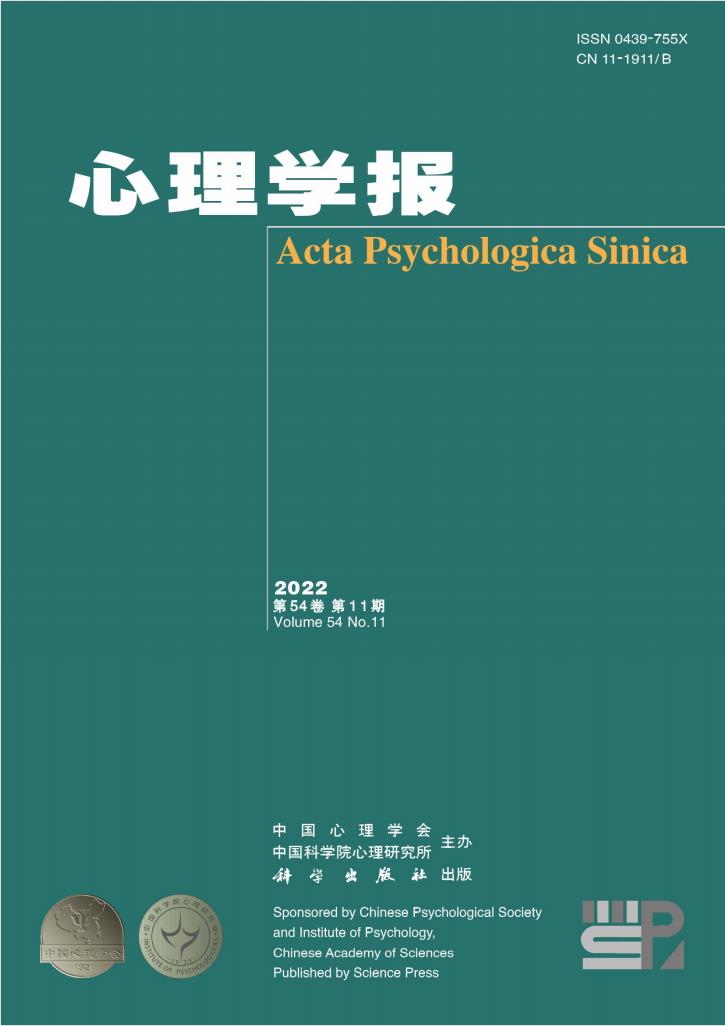早期生活环境的不可预测性与暴饮:基于生活史理论
IF 1.3
4区 心理学
Q3 PSYCHOLOGY, MULTIDISCIPLINARY
引用次数: 14
摘要
根据生命史理论,生物在躯体努力和生殖努力之间分配有限的能量和资源时面临着必要的权衡,个体如何分配资源来应对生存和生殖任务反映了他们的生活史策略。在不可预测的环境中,个体倾向于在生殖努力上投入更多,并优先考虑眼前的回报,因为未来是不确定的。我们的研究调查了早期生活环境的不可预测性是如何影响暴饮暴食的,以及两者之间的潜在机制。研究1招募了91名青少年参与者,并采用了“无饥饿进食”方案(EAH)。参与者被随机分配到“饥饿”组或“饥饿”组两组都完成了一项食物分量选择任务,向参与者展示了36种食物类型的照片(18种高热量和18种低热量),参与者在每张照片上从0(没有)到4(四份)选择他们想要的食物分量。结果表明,饥饿状态可以调节早期生活环境不可预测性对暴饮暴食的影响。环境不可预测性与高热量/不健康食物的选择无关,而环境高不可预测性的被试比环境低不可预测性的被试选择了更多的高热量/不健康食物,即暴饮暴食;(b)在饥饿状态下,环境高不可预测性的被试比环境低不可预测性的被试选择了更少的低热量/健康食物。因此,我们的研究结果一方面支持了最初的假设,即在没有饥饿状态的情况下,早期生活环境的不可预测性会促进暴饮暴食;另一方面,我们的研究结果表明,处于饥饿状态的个体会更冲动。研究2研究了高死亡威胁状态和低死亡威胁状态的参与者在暴饮暴食方面的差异。前一组由来自2019冠状病毒病(COVID-19)爆发中心武汉市的301名社区居民组成,后一组由来自中国其他42个城市的179名社区居民组成。结果表明,早期生活环境不可预测性可能通过快速生活史策略的中介作用影响暴饮暴食,而感知死亡威胁和社会支持可能调节快速生活史策略与暴饮暴食之间的路径。对于社会支持度高的个体,快速生活史策略与暴饮暴食没有关系;而对于社会支持度低的个体,快速生活史策略与暴饮暴食没有关系。研究结果表明,通过快速生活史策略,早期生活环境的不可预测性与暴饮暴食呈正相关。当当前环境危及生命时,这种影响会加剧;而对于拥有高社会支持的个人,这种影响会得到缓冲。研究结果为COVID-19背景下健康饮食促进的预防和干预提供了证据©2020,科学出版社版权所有本文章由计算机程序翻译,如有差异,请以英文原文为准。
Early life environmental unpredictability and overeating: Based on life history theory
According to life history theory, organisms face necessary trade-offs in allocating limited energy and resources between somatic effort and reproductive effort How an individual allocates resources to cope with survival and reproductive tasks reflects their life history strategies In unpredictable environments, individuals tend to invest more in reproductive efforts and prioritize immediate payoffs because the future is uncertain, and the delayed benefits may not be available later Food may be considered an immediate reward and overeating may more likely occur among people living in unpredictable environments Our research investigated how early life environmental unpredictability affects overeating and the underlying mechanism between the association Study 1 recruited 91 adolescent participants and utilized the Eating in the Absence of Hunger protocol (EAH) Participants were randomly assigned either to the “hunger” or “absence of hunger” groups Both groups completed a food portion choice task Participants were presented with photographs of 36 food types (18 high-calorie and 18 low-calorie), where participants chose their desired food portion on each picture from 0 (none) to 4 (four portions) Results indicated that the hunger state could moderate the effects of early life environmental unpredictability on overeating Specifically, (a)in hunger state, environmental unpredictability was not associated with selected high-calorie/unhealthy food portion, while participants living in high environmental unpredictability selected more high-calorie/unhealthy food portion than those living in low environmental unpredictability, i e , overeating;(b)in hunger state, participants living in high environmental unpredictability selected less low-calorie/healthy food portion than those living in low environmental unpredictability, while in the absence of hunger state, environmental unpredictability was not associated with selected low-calorie/healthy food portion Hence, our results, on the one hand, supported the initial hypothesis that early life environmental unpredictability could promote overeating in the absence of hunger state On the other hand, our findings demonstrated that individuals in the hunger state would be more impulsive, selecting less healthy food Study 2 examined differences in overeating between participants with high and low perceived death threat states The former group was comprised of 301 community residents from Wuhan City, the epicenter of the Coronavirus Disease 2019 (COVID-19) outbreak The latter group was comprised of 179 community residents from the 42 other cities in China Participants completed questionnaires regarding early life environmental unpredictability, fast life history strategy (Mini-K), overeating, perceived death threat, and social support Results indicated that early life environmental unpredictability may affect overeating through the mediating role of fast life history strategies Moreover, perceived death threat and social support may moderate the path between fast life history strategies and overeating Evidently, participants with both high and low death threats, fast life history strategies were positively associated with overeating;however, the effect was smaller for the latter grouping For individuals with high social support, fast life history strategies were not associated with overeating;while for individuals with low social support, fast life history strategies were positively associated with overeating Findings indicated that environmental unpredictability in early life was positively associated with overeating through fast life history strategies Additionally, this effect intensifies when the current environment is life-threatening;while the effect would be buffered for individuals with high social support Findings provided evidence for the prevention and intervention of healthy eating promotion in the context of COVID-19 © 2020, Science Press All rights reserved
求助全文
通过发布文献求助,成功后即可免费获取论文全文。
去求助
来源期刊

心理学报
Psychology-Psychology (all)
CiteScore
1.70
自引率
13.30%
发文量
1612
期刊介绍:
Acta Psychologica Sinica (ISSN 0439-755X) is a scholarly journal sponsored by the Chinese Psychological Society and the Institute of Psychology, Chinese Academy of Sciences, and published monthly by the Science Press.
Acta Psychologica Sinica has been included in many important national and international indexing systems such as SCOPUS (Elsevier), ESCI (Web of Science), PsycINFO (APA), CSCD. It is the flagship journal of the Chinese Psychological Society that publishes peer-reviewed original empirical studies and theoretical articles spanning the entire spectrum of scientific psychology.
Acta Psychologica Sinica publishes high-quality research that investigates the fundamental mechanisms of mind and behavior and aims to deliver scientific knowledge to enhance our understanding of culture and society. It welcomes submissions of manuscripts reporting research that is up-to-date, scientifically excellent, and of broad interest and significance.
 求助内容:
求助内容: 应助结果提醒方式:
应助结果提醒方式:


